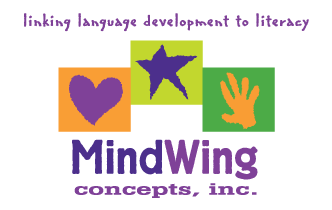Menu
-
- Home
-
About Us
-
The Approach
-
Linking Language & Literacy
-
MindWing Learning
-
Learning Resources
-
SHOP
-
Blog
-
- About MindWing
- Our People
- Contact Us
- Your Account
- Login
-
Spain (EUR €)

Tech Tuesday/Summer Study Series: Fostering Rhetorical Competence in Expository Text Interventions
June 19, 2019 3 min read
 This summer we are bringing back the “Summer Study Series!” This series of posts is providing summaries of recent research related to narrative and expository language and Story Grammar Marker®/ThemeMaker® in order to expand your toolkit and library of evidence-based practice information for September.
This summer we are bringing back the “Summer Study Series!” This series of posts is providing summaries of recent research related to narrative and expository language and Story Grammar Marker®/ThemeMaker® in order to expand your toolkit and library of evidence-based practice information for September.
So, to our study for the month! We invite you to Spain, this time, for some work clearly relevant in English as well, from García, Sánchez, Cain & Montoya (2019), published in the journal Learning and Individual Differences. Their “Cross-sectional study of the contribution of rhetorical competence to children's expository texts comprehension between third- and sixth-grade” looked at rhetorical competence (RC), or knowledge and understanding of certain text cues within expository texts and its interaction with reading comprehension. Some summarized points from the study are as follows:
- The authors provide a helpful description of three key aspects of rhetorical competence critical to understanding of expository text. These include anaphors, referents back to something earlier in the text such as “This experiment,” and the ability of students to figure out what experiment the author is talking about. Users of Thememaker® and its Information Maps will be familiar with the second aspect, organizational signals, which include the key words that signal different expository text structures are present (e.g., one/another for list, before/after for sequence, because/so for cause-effect, and so on). The third aspect, refutational cues, are ones that signal the reader to activate background knowledge and, in effect, challenge it, e.g., “Most people think that ____. However…”
- The aims of their study were threefold: to describe how RC increases by grade, specify its importance to reading comprehension, and determine its effects over reader characteristics such as working memory, decoding, inference skills or prior knowledge.
- Participants included 586 Spanish-speaking students (in Spain) from grades 3-6, 8-12 years old. The students read a created passage about soil destruction, describing its (hey, a simple anaphor) causes, consequences and solutions. Students wrote a summary, answered questions and completed sentences that were meant to determine if they had processed the anaphors, organizational signals, or refutation cues present in the text. Students also were engaged in other measures such as decoding, inference skills, and prior knowledge (i.e., a lexical sorting task related to the topic of the passage).
- The researchers found that RC develops over the extended age range they examined (e.g., some skills are notable in 3rd graders, and develop over time) and specifically in this order: anaphor, organizational structure, refutational cues, which were hardest. It was suggested that it is developmentally appropriate to target organizational structures around the 3rd grade year. They concluded that the extended period of development of these skills indicates they are not really being explicitly taught in classrooms. Interestingly, the data showed that RC seemed to affect reading comprehension more than the other factors assessed: decoding, working memory, inference skills, and prior knowledge.
- A specific conclusion is notable and helpful: “Rhetorical competence is a unique predictor of expository text comprehension, and its influence is evident regardless of grade, decoding ability, integration/inference skills, prior knowledge, and working memory. As a result, educators should be aware of the importance of rhetorical competence and foster its development and young readers to enhance their potential to learn from expository text.”
- The authors were not specific about what specific tools, resources or strategies might be used to foster RC. I have been at workshops of late that emphasized the importance of teaching anaphoric signals, and have experienced first-hand students who seem to miss them and benefit from their being emphasized in therapy activities. As mentioned above, the article overall provides a validation of the importance of teaching expository text cues (key words), as visualized on any of the Thememaker® Expository Text Maps!
A note of thanks to The Informed SLP, which provides wonderful digests of practical research; their posts and monthly review alerted me to this article. I highly recommend checking out their work as part of your Summer Studies, and do note that their website contains free resources as well as the subscription service.
As a tech tie-in, be sure to see my recent post, which suggests a number of sources of engaging expository text with which you can employ this research!
Leave a comment.
Comments will be approved before showing up.
